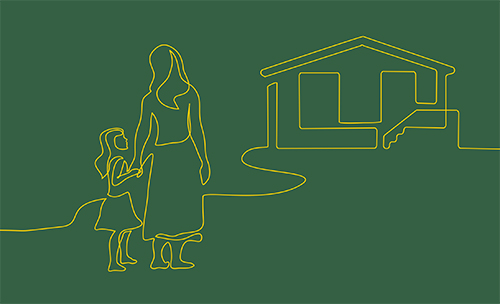MAP has launched 10 collaborative solutions networks with a common goal: to effect real-world social change by co-designing and demonstrating what works to address critical urban health challenges in our communities. Learn more

One in four Canadian women will experience physical, sexual, and/or psychological violence from an intimate partner in her lifetime.
For many women, leaving a violent relationship means being displaced from home and community. This unfair consequence for women and their children has traditionally been accepted as unavoidable.
The Solution
Our network is co-designing a better solution. Based on the Safe at Home model from Australia, this program requires the perpetrator to leave the family home, giving survivors of violence the option to remain in place and recover with supports from integrated health, social, police, and legal services. Some programs provide services and counselling to the perpetrators as well.
This is the first time that this solution will be tested in urban Canada. Our goals are to tailor the program’s pillars to urban Canadian settings; create a blueprint for the program’s cross-sector collaborations and commitments; and use evaluation to guide successful implementation, paving the way to successful scale-up across Canada.
The Outcome
In addition to providing immediate support to the participants, this study could establish a new, innovative best practice to better support and protect women and children across Canada who are experiencing violence in their homes.
To help support safe housing solutions for women and children experiencing Intimate Partner Violence, visit: https://stmichaelsfoundation.com/safeathomehamilton
Steering Committee
- Housing Services
- City of Hamilton
- Good Shepherd Centres
- Hamilton Police Services (Intimate Partner Violence Unit and Victim Services)
- Interval House of Hamilton
- Mission Services of Hamilton
- Peer2Peer Consultants
- YWCA Hamilton
- Hamilton Community Legal Clinic
- Immigrants Working Centre
- Probation and Parole (Ministry of the Solicitor General)
- John Howard Society of Hamilton Burlington and Area
- Banyan Community Services
Advisors to the Steering Committee
- Ruth Greenspan
- Jim Dunn
- Alexa Yakubovich
- Nick Metheny

